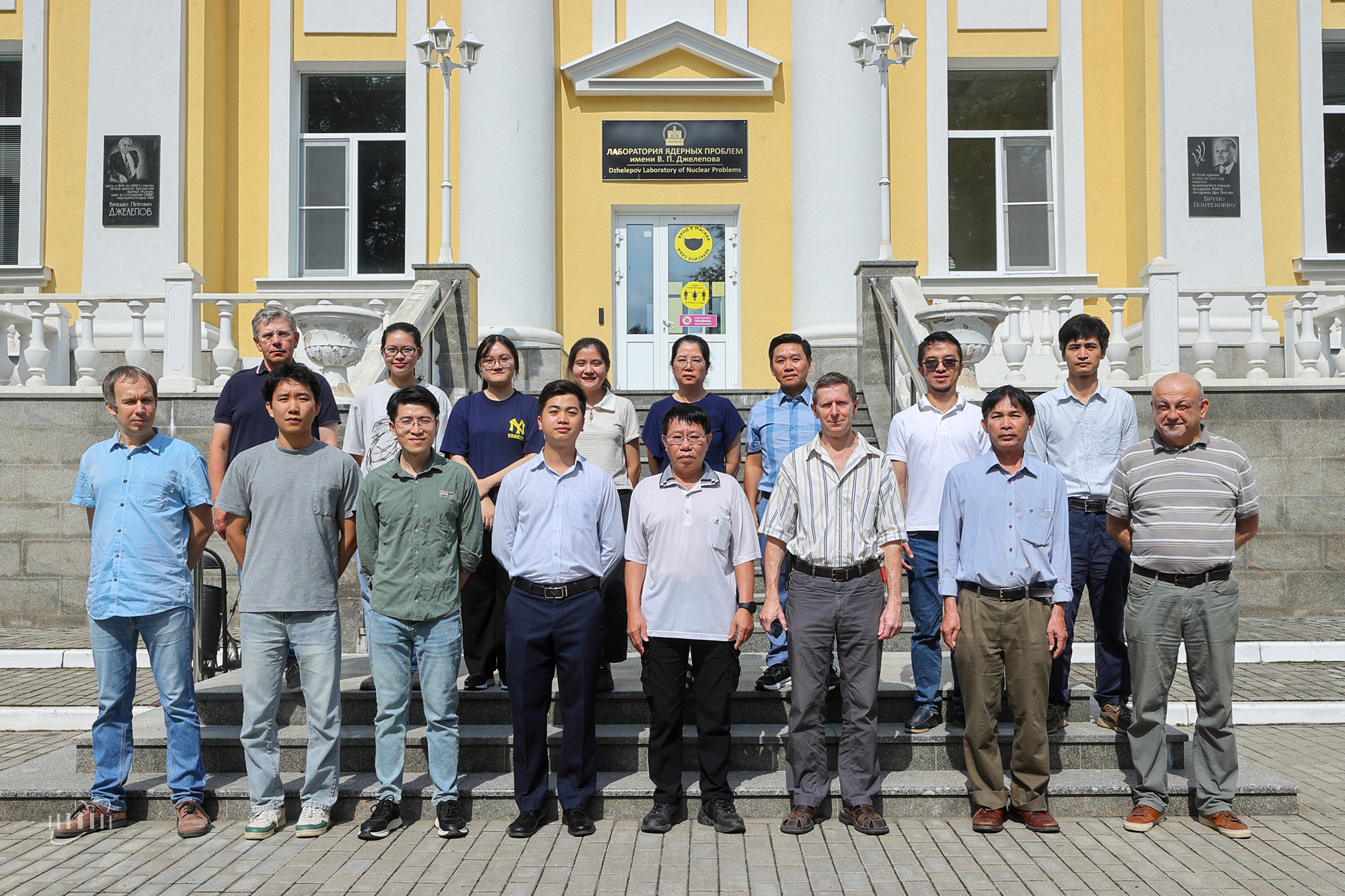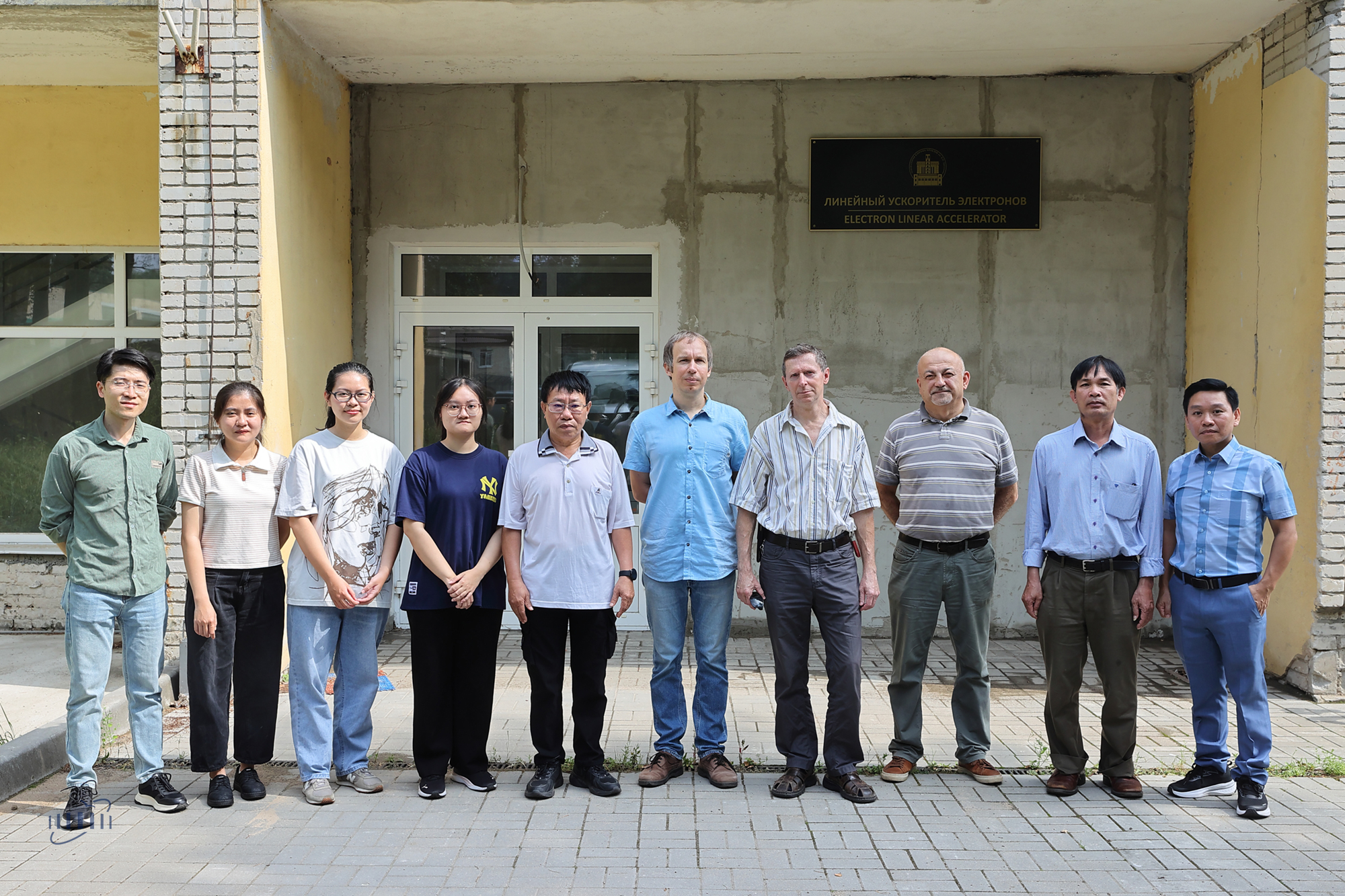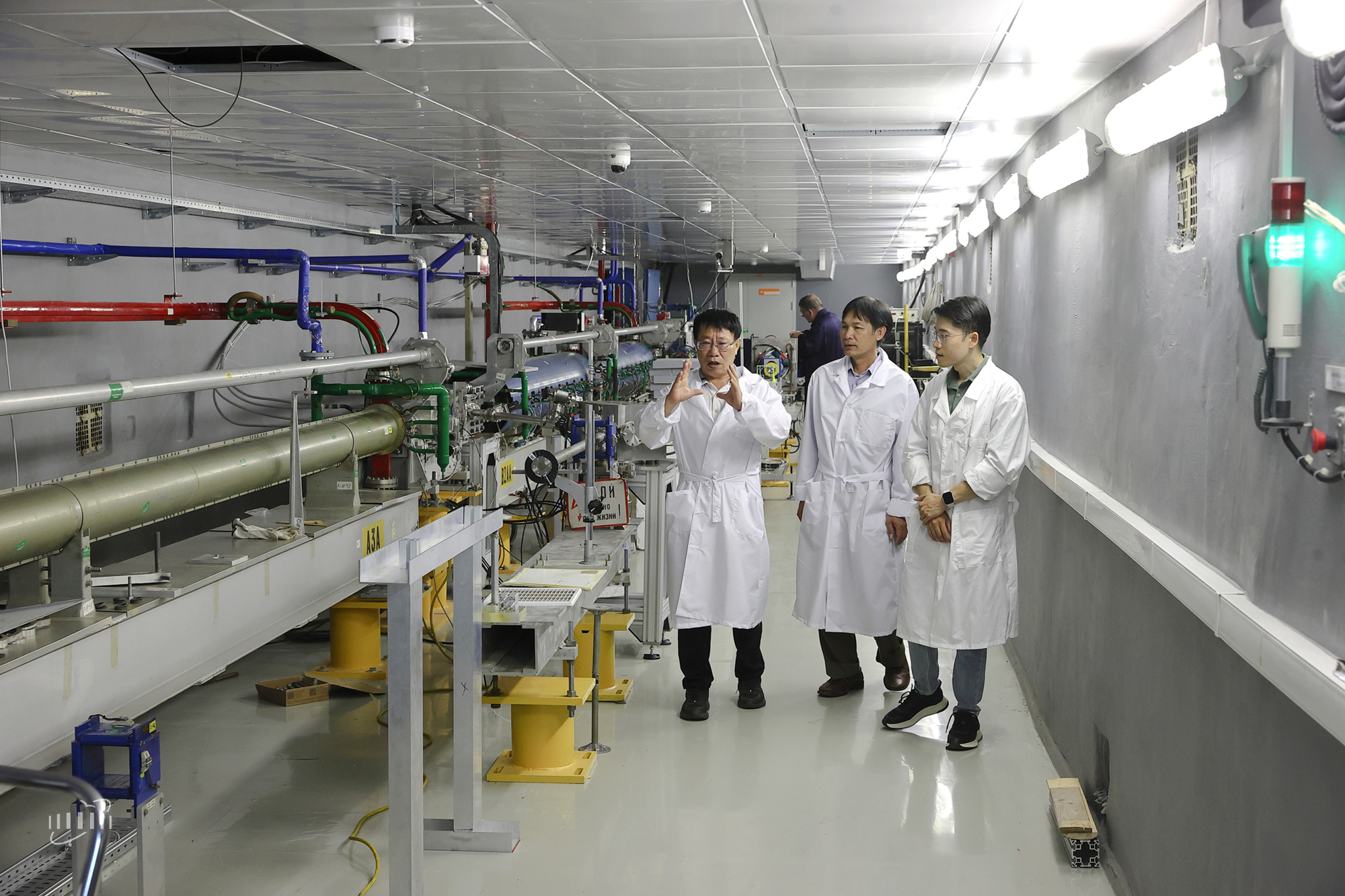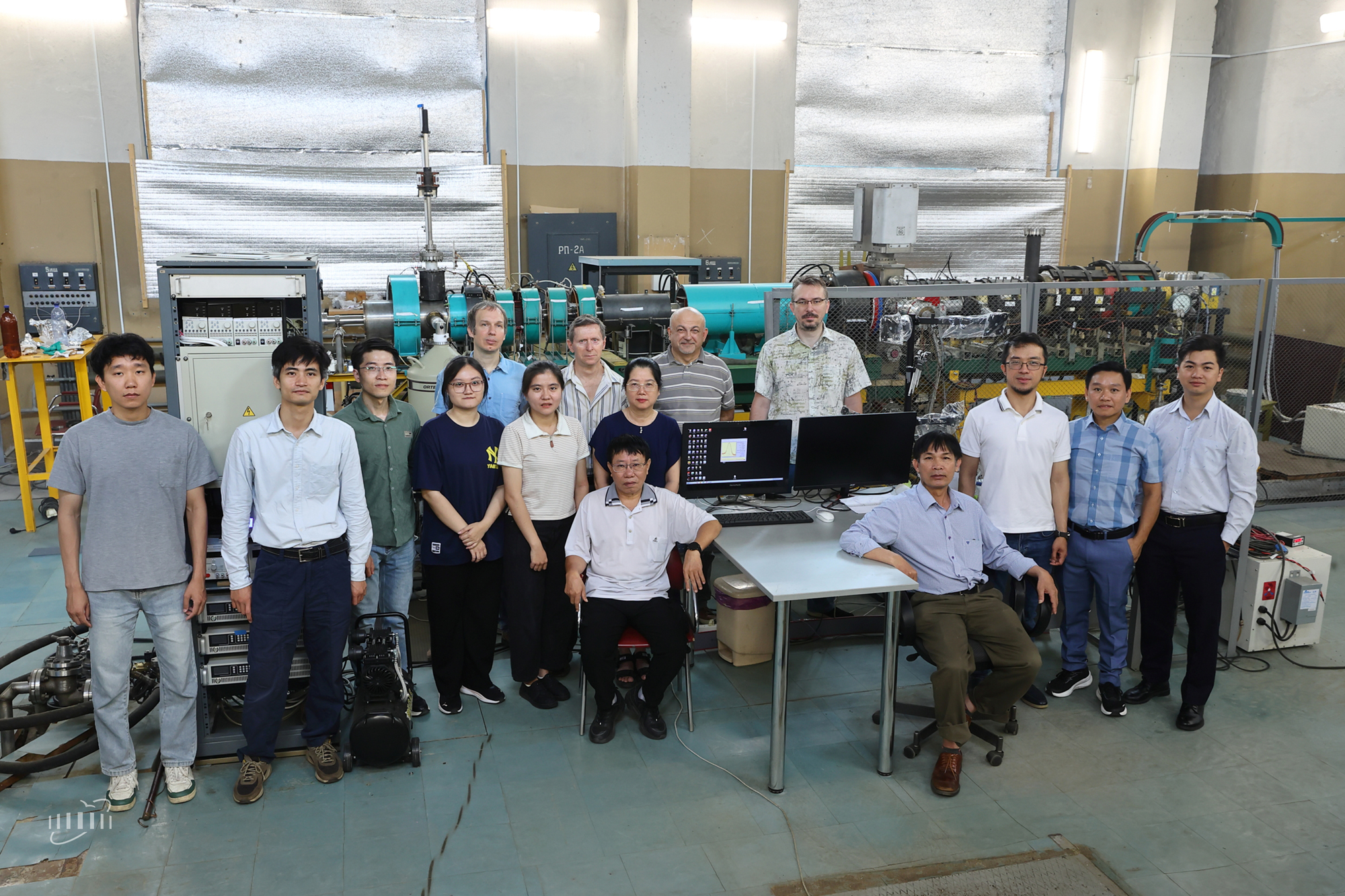Cooperation with young scientists of Vietnam intensifies at DLNP at JINR
News, 24 July 2025
A group of physicists and engineers from Vietnam has arrived to the Laboratory of Nuclear Problems at JINR. In the coming months, the Vietnamese specialists will work in the DLNP departments, participating in research and mastering the technologies necessary to launch Vietnam’s national programmes.
Vietnam–JINR Cooperation Coordinator, a member of the JINR Scientific Council Lễ Hõng Khiếm explained that the country’s temporarily paused nuclear energy development programme is expected to resume. With JINR’s participation, it is planned to build a National Nuclear Research Centre, including a 10 MW research reactor. At the same time, there is a shortage of highly qualified scientific and technical personnel in Vietnam. The Laboratory of Nuclear Problems has numerous large facilities and participates in several major projects that can contribute to the training of the younger generation of scientific and technical specialists in Vietnam.
“According to the Vietnamese Government, the only way for the country to achieve long-term prosperity is through the development of science and technology. In accordance with this strategic vision, the state budget for scientific and technical development continues to increase. One of the key priorities is the application of radiation and nuclear energy technologies,” Lễ Hõng Khiếm emphasised.
Professor Lễ said that one of the important initiatives in the Joint Institute’s cooperation with Vietnam is the proposal of the Vietnamese Academy of Sciences and Technology (VAST) to establish a JINR–VAST laboratory in the country. This laboratory’s goal is to create a facility consisting of a cyclotron and a linear electron accelerator. The project is currently at the stage of a prefeasibility study.
Under the guidance of Professor Lễ Hõng Khiếm, the Vietnamese group proposed new experiments on a special channel of the LINAC-200 Electron Accelerator at DLNP at JINR. It is planned to conduct some of them in 2025. The proposed experiments correspond to Vietnam’s research priorities and cover both nuclear physics and other scientific fields such as chemistry, biology, and geology. Many Vietnamese universities and institutes expressed great interest in expanding cooperation with DLNP to jointly implement research projects as well.
Currently, scientists from Vietnam are contributing to the work of the scientific groups of the Laboratory of Nuclear Problems. Together with Vietnamese colleagues, JINR conducts research in radiochemistry, neutrino physics, and materials science using slow positron beams; develops devices for nuclear medicine; and carries out experiments at the NICA Accelerator Complex.



